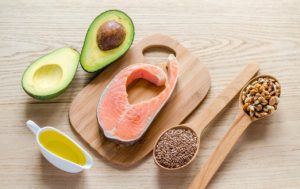 Rheumatoid arthritis management can be achieved through an anti-inflammatory diet and Mediterranean diet in order to reduce inflammation. Nutrition plays a vital role in all of our bodily functions and eating the right foods can mean the difference between good or poor health. Many foods are natural healers, so it should be of no surprise that food can play a role in managing rheumatoid arthritis (RA).
Rheumatoid arthritis management can be achieved through an anti-inflammatory diet and Mediterranean diet in order to reduce inflammation. Nutrition plays a vital role in all of our bodily functions and eating the right foods can mean the difference between good or poor health. Many foods are natural healers, so it should be of no surprise that food can play a role in managing rheumatoid arthritis (RA).
Overall, rheumatoid arthritis patients are recommended to consume a healthy, balanced diet to maintain a healthy weight. Guidelines found in the Nutrition and Your Health: Dietary Guidelines for Americans, fourth edition, describe what kind of diet patients with rheumatoid arthritis should stick to. The recommendations suggest eating a variety of foods, balancing healthy eating habits with physical activity, consuming plenty of grains, fruits, and vegetables, sticking with a low-fat diet, which is also low in saturated fat and cholesterol, moderating sugar intake, and drinking alcohol in moderation.
Advertisement
The best way to eat, regardless of whether you have rheumatoid arthritis or not, is to stick with whole, real foods and avoid anything that’s been processed as much as possible.
Mediterranean diet for managing rheumatoid arthritis symptoms
The Mediterranean diet has grown in popularity as it has been shown to help improve brain and heart health. The basis of the Mediterranean diet is poultry and fish, plenty of fruits and vegetables, whole grains, olive oil, nuts and seeds, as well as reduced intake of processed food and sugars.
Research has shown that patients who stuck with the Mediterranean diet experienced a reduction in symptoms.
To adhere to the Mediterranean diet, aim for at least four servings of vegetables and two or more servings of fruit, and use olive oil more often as it helps to reduce inflammation, which can worsen symptoms.
Food choices for rheumatoid arthritis treatment
If you’re unsure as to what types of foods you should be consuming with rheumatoid arthritis, here are some guidelines that can aid in treatment.
Change the type of fat in your diet: RA patients are at a higher risk for heart disease, so choosing the right fats can help keep your risk at bay. Olive oil, for instance, is a good example of a healthy fat. Read labels carefully to spot saturated or trans fats.
Eat more oily fish: Oily fish contain essential fatty acids that can work to reduce inflammation.
Eat iron-rich foods: Iron-rich foods can help combat fatigue resulting from anemia, which is quite common in RA. Iron-rich foods are eggs, green leafy vegetables, beans, and red meat. For higher iron absorption, consume iron foods with vitamin C.
Eat calcium-rich foods: Calcium helps keep bones strong which is important in rheumatoid arthritis in order to reduce the risk of osteoporosis.
Foods to avoid to prevent rheumatoid arthritis inflammation
Just as some foods can help reduce rheumatoid arthritis inflammation, other foods can actually promote inflammation, which can worsen rheumatoid arthritis symptoms. Foods to avoid in order to prevent rheumatoid arthritis inflammation include fried and processed items, foods that have been charred or heated at high temperature, pasteurized products, sugars and refined carbohydrates, dairy products (get your calcium from leafy greens), alcohol and tobacco, salt and preservatives, and corn oil.
Vegetarian diets and rheumatoid arthritis
 Based on the recommendations of foods to eat with rheumatoid arthritis, one may question whether simply going vegetarian may be the ideal diet. A vegetarian diet does consist of many of the foods that can help reduce inflammation, and small studies have found going it can reduce inflammatory markers.
Based on the recommendations of foods to eat with rheumatoid arthritis, one may question whether simply going vegetarian may be the ideal diet. A vegetarian diet does consist of many of the foods that can help reduce inflammation, and small studies have found going it can reduce inflammatory markers.
Advertisement
Aside from reducing inflammation, other benefits of cutting meat out of one’s diet have been found. For example, vegetarians and vegans are less likely to be overweight or obese. They also tend to have lower blood pressure and cholesterol. On the other hand, vegetarians and vegans are often low in essential B vitamins, vitamin D, calcium, and essential fatty acids, meaning supplementation must be higher in vegetarians and vegans in order to obtain all these essential nutrients.
Another downfall to being vegetarian or vegan is, these individuals often do not get enough of extra virgin olive oil, which is helpful in the reduction of inflammation.
If you already are a vegetarian or vegan with rheumatoid arthritis, ensure you are getting all your essential vitamins and increasing your intake of olive oil to better help manage symptoms.
